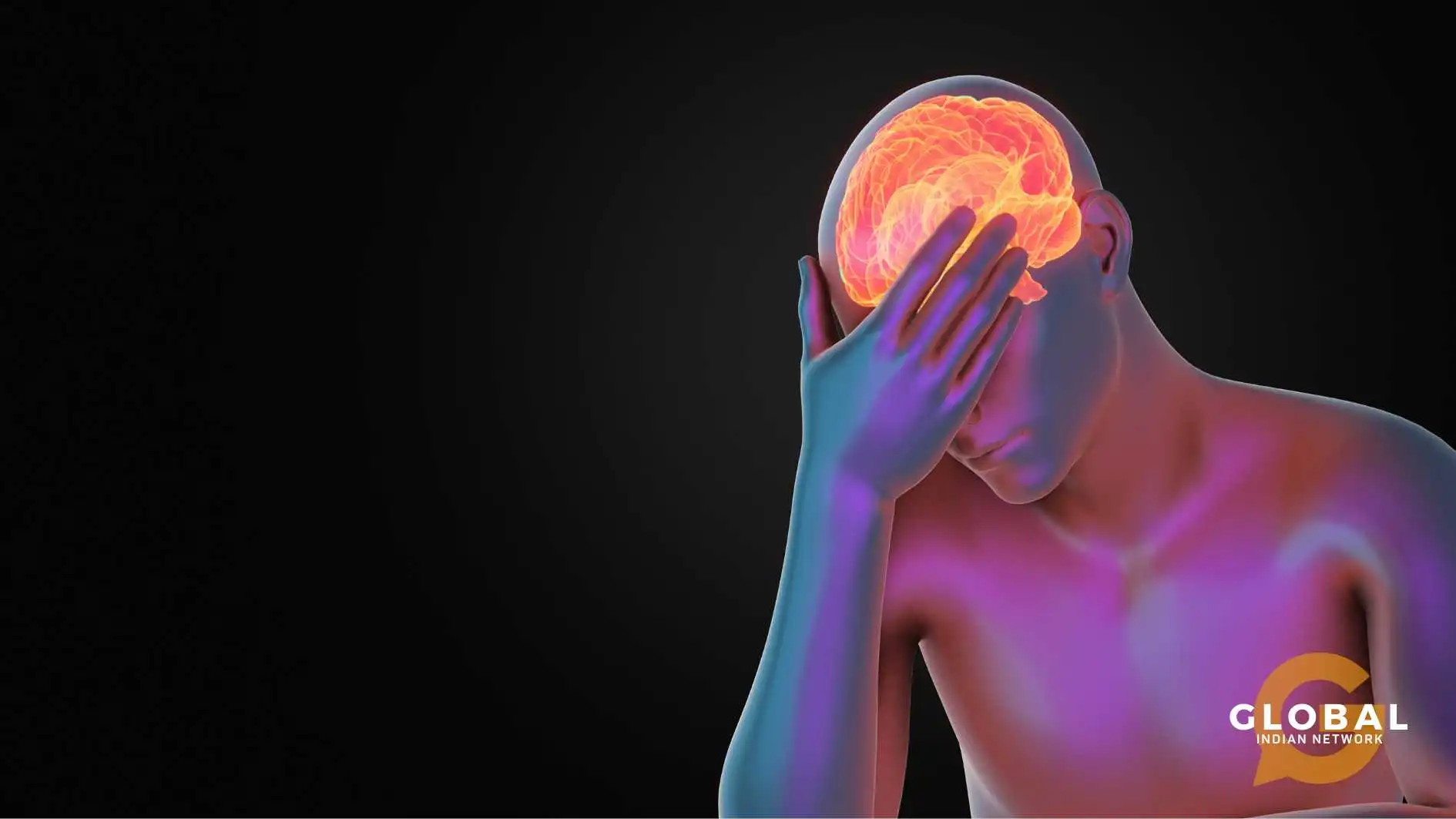Stress, anxiety, and emotional exhaustion are becoming prevalent problems in our fast-paced world. Modern medicine has proven to be a solution for those with the means to use prescription medication, but many people also desire deeper healing, not just treating their symptoms. For this reason, more people are turning to ancient healing. They want an approach that is holistic and complete.
Ayurvedic treatment for mental health seeks to balance your mind, body, and spirit through natural interventions, lifestyle adjustments, and inner alignment. Based on thousands of years of tradition, Ayurveda teaches practical ways to focus on more than just symptom relief and aftercare but encourages all-around wellness for your health and your mind. This guide explains how Ayurvedic practices can be beneficial for mental health, effective in enhancing mood, and effective in creating resilience, all naturally and gently.
Table of Contents
The Ayurvedic Understanding of Mental Health
The Ayurveda approach to mental health is unique and truly holistic. Conventional or mainstream medicine often treats psychological issues in isolation from the physical body. Ayurveda sees the mind and body as being connected through the balance of three biological energies called doshas: Vata, Pitta, and Kapha. These doshas manifest in emotional and psychological mental health disorders as anxiety, anger, or depression. Ayurvedic treatment for mental health means finding the doshas that are out of balance to treat them at their source, not just masking the symptoms superficially.
Ayurveda can also be understood because of the three mental qualities, or Gunas. Gunas include Sattva (purity and clarity), Rajas (activity and restlessness), and Tamas (inertia and ignorance). A person with excellent mental health would have predominantly Sattvic qualities. It is important to build Sattva with a diet, meditation, and righteous living as part of healing the mind.
Digestive health, sleep, and a balanced nervous system are all imperative to mental health. Ayurvedic treatment for mental health is most often associated with physical interventions such as lifestyle changes, detox routines, detoxification, and herbal supplements to bring the inner rhythms of the body into alignment with natural rhythms. Interventions include traditional Ayurvedic practices with a goal of calming Vata dosha and stabilizing emotional extremes, such as Abhyanga (oil massage), pranayama (breathing practices), and meditation.
Daily practices of mindfulness, seasonal routines, and staying away from overstimulating activities are ways to reinforce stability. Ayurveda recognizes that emotional healing starts with the self-awareness cycle and is dependent on maintaining the effort and discipline that an individual must bring on their own. Personalized methods and natural remedies through Ayurvedic treatment for mental health provide a way for men and women to actively take ownership of their mental states in the spirit of kindness to themselves and purpose.
Through investigating root causes and using time-tested practices to resolve them, Ayurveda holds a supportive approach to emotional health that fosters mental acuity but, perhaps equally important, restores deep inner peace.

Daily Practices in Ayurvedic Treatment for Mental Health
Establishing a healthy daily routine is an excellent way to promote emotional balance. Ayurvedic treatment for mental wellness incorporates a daily routine, which is embodied in the concept of Dinacharya. Dinacharya is a daily routine that synchronizes your body and mind with the natural rhythms of the day and provides a greater sense of mental clarity and calm. In time, a daily routine will serve as a preventive mechanism for disturbances of emotional well-being.
An Ayurvedic morning routine typically includes scraping the tongue, oil pulling, and Abhyanga (self-massage with warm oil), followed by some gentle yoga and a period of pranayama. These activities help calm the nervous system and ground Vata, the Ayurvedic dosha we most associate with feeling anxious, as it is stuck in our heads. When Vata is grounded, the mind and body experience calmness and focus—two key elements of mental health.
The timing of eating is important as well. Ayurveda specifically suggests that meals should be warm, freshly cooked, and sattvic (pure). Ingredients like ashwagandha, turmeric, and ghee benefit both body and mind, thus supporting the goal of Ayurveda of treating mental health. Additionally, avoiding late-night eating, not having processed foods, and not eating cold or stale meals are also included.
Detoxing from technology, in the evening especially, is encouraged to settle the mind. Calming routines before bed, like herbal tea, warm baths, or light meditation, can help you sleep more deeply, which is vital for mental equilibrium. Heading to bed no later than 10:00 p.m. and waking up early creates balance in your circadian rhythm, which is a foundational aspect of Ayurveda.
Therapeutic strategies on mindfulness, as instructed through Ayurvedic treatment for mental health, allow ancient wisdom to integrate into a routine that turns otherwise mundane activities into mindfully healing acts. When walking, eating, or journaling, every occasion becomes an opportunity to ground oneself. These mindful experiences build into a habit of self-care focused on increasing emotional resilience and create long-term mental clarity without heavy medications with side effects.
Herbs and Therapies That Support the Mind
Some of the most amazing and successful aspects of Ayurvedic treatment for mental health are the natural herbs and therapeutic modalities that are available. These modalities have been effective for centuries in relaxing the mind, soothing the body, reducing stress, and enhancing cognitive power. Ayurvedic herbs, unlike Western medicine, are used to support the nervous system, digestive system, and emotional processing together as opposed to just treating a symptom.
One great example of an Ayurvedic herb is ashwagandha, a very strong adaptogen that has been used to reduce cortisol, the stress-inducing hormone. Ashwagandha is a very popular Ayurvedic treatment for mental health because it promotes calmness, eases fatigue, and can increase resiliency with stressors. Then there is Brahmi, an Ayurvedic herb used to aid memory, mental focus, and mental clarity overall. Brahmi is also effective for individuals who may have a hard time concentrating or may be experiencing instability in their emotions. Shankhpushpi is known to be useful for anxiety, and sleeplessness accompanied by anxiety is relieved.
Shankhpushpi is a natural brain tonic that relaxes the mind without causing sedation. These herbs and treatments are available in forms such as teas, powders, or tablets and are considered safe by Ayurvedic practitioners when prescribed by a certified Ayurvedic practitioner.
Therapies like Shirodhara, which involves allowing warmed oil to flow gently on the forehead, help take stress off the nervous system, as this is considered one of the foundations of
Ayurvedic treatment to assist with mental health. Sirodhara is known to greatly assist people with chronic amounts of daily stress, as well as those who do not sleep well, individuals suffering from PTSD, etc., as calming the body and mind through warm oil therapy seems to greatly help. Other therapies like Nasya (nasal therapy) and Panchakarma (detoxification) are meant to clear or detoxify the body of poison or toxins that may cloud out the mind or cause dysfunctional mind and body harmony.
In combination, these herbs and therapies aim to restore mental harmony and create a positive emotional balance. They are a natural, holistic alternative to pharmaceuticals and will work best when taken with lifestyle improvements and mindfulness-based changes. Ayurveda provides a means to tackle the root cause of the disharmony in the mind and body to promote healing and create a sustainable means of inner peace and harmony.
Conclusion
Modernity calls for a deeper, more integrative understanding of emotional well-being, and Ayurvedic treatments for mental health can provide that. The uniqueness of Ayurvedic treatment lies in the focus on a balanced diet, lifestyle, meditation, and herbs. Ayurvedic treatment for mental health is a natural, preventive, and long-term solution to mental health management. Rather than simply offering a quick fix to mental health struggles, Ayurvedic treatment encourages people to engage with their body and mind consciously and with purpose.
Ayurvedic treatment for mental health is about more than simply reducing stress, increasing clarity of thought, or feeling more relaxed. It opens the door to the possibility of meaningful change. Ayurveda has been around for a long time, and there is more and more modern research supporting this practice. Ayurveda teaches us that mental health is not just in the mind but also in how we live our lives every day.

FAQs
Who is the most well-known Ayurvedic physician?
Dr. Bheema Bhatta is the most experienced Ayurveda doctor. Bheema Bhatta has treated 100,000+ patients to date. Honorary physician to various noted personalities such as the former president of India, the former PM of India, many ministers, the former Lok Sabha speaker, etc.
How does Ayurveda support mental health?
Ayurveda aims to balance the body and mind by focusing on restoring equilibrium in the doshas (Vata, Pitta, and Kapha) in the body. When balance is restored in the doshas of the body, an increase in mental clarity and emotional stability can be achieved through stress-reducing modalities, such as meditation, yoga, and other Ayurvedic treatments.
What is the best Ayurvedic remedy for depression?
Indian ginseng, or ashwagandha, manages fluctuations in mood and anxiety. A number of Ayurvedic herbal medicines, like Brahmi, Guduchi, and Bhringraj, together are able to calm the brain and calm the condition of depression. You can benefit from Ayurvedic herbal medicine by talking with your prescribing doctor for anxiousness or managing stress and mental fatigue.









